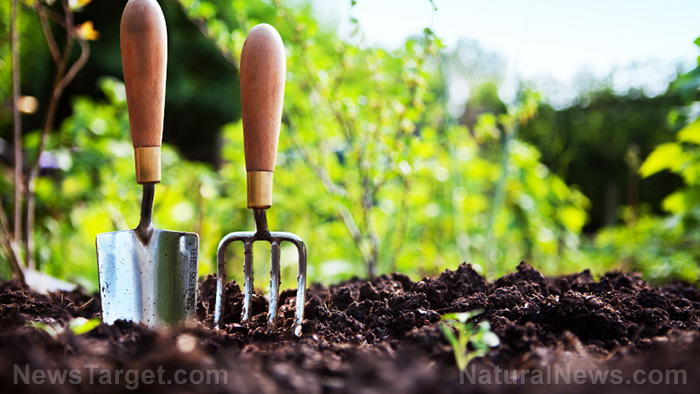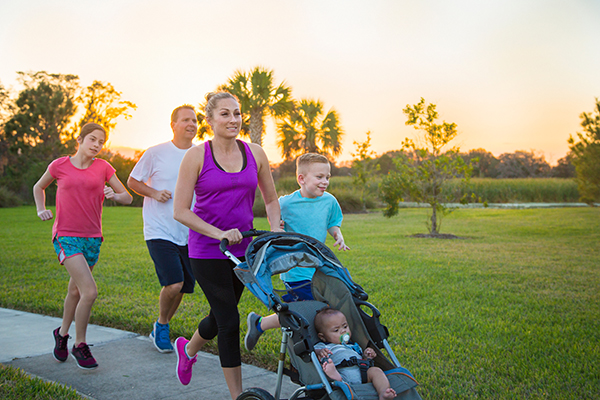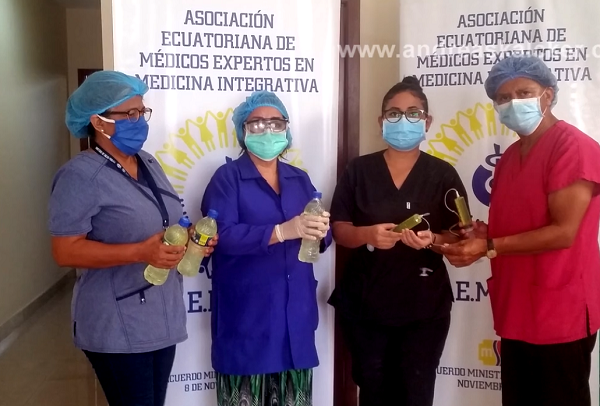
According to the Centers for Disease Control and Prevention, about 264,000 cases are diagnosed annually in American women, and about 42,000 die from the disease each year. Breast cancer is not only exclusive to women, as men can also develop abnormal growths in their breast tissue. Although fewer than one percent of all breast cancers occur in men, the lack of routine screening for males means the disease is often diagnosed at a more advanced stage.
But breast cancer is not inevitable. Research shows that women (and men) can decrease their risk of developing breast cancer by implementing simple but meaningful lifestyle changes.
Here are five natural ways you can prevent breast cancer according to science:
Eat plenty of cancer-fighting superfoods
According to the American Institute for Cancer Research, a diet rich in organic fruits, vegetables, whole grains and legumes can help lower a person's risk for many cancers. Researchers attribute the cancer-fighting potential of these plant-based foods to vitamins, minerals and phytonutrients that are naturally endowed with anticancer properties.
Some of the foods that have demonstrated anticancer effects in numerous studies include:
- Apples
- Blueberries
- Broccoli
- Coffee
- Garlic
- Kale
- Raspberries
- Tea
- Walnuts
- Whole grains
When it comes to breast cancer prevention, research has found that increased intake of cruciferous vegetables, particularly broccoli and cauliflower, significantly reduces breast cancer risk. This is especially true for premenopausal women. Researchers believe that the anticancer effects of cruciferous vegetables may be attributed to the estrogen-modulating activities of isothiocyanates (ITCs). Cancer-fighting ITCs are formed from the glucosinolate precursors present in cruciferous vegetables.
The major glucosinolate in broccoli and other cruciferous vegetables is glucoraphanin. This inert compound is a precursor to sulforaphane, the powerful chemical responsible for many of broccoli's health benefits, including its anticancer properties. Sulforaphane is released via an enzymatic reaction when cruciferous vegetables are crushed or chewed.
Walnuts are another superfood that offer protection against breast cancer. In a clinical trial published in the journal Nutrition Research, researchers found that walnut consumption significantly altered the expression of 456 relevant genes in the breast tumors of cancer patients. The women added two ounces of walnuts to their daily diet immediately following a biopsy and until their follow-up surgery.
Further analysis revealed that the genetic changes caused by the women's consumption of walnuts not only led to the death of breast cancer cells, but also to the inhibition of pathways that would've allowed those cells to multiply uncontrollably. (Related: Study reveals: Men should eat walnuts to prevent prostate cancer.)
Reduce your consumption of processed foods
Just as there are foods that can fight cancer, there are also foods that can promote cancer. Number one among these foods are unhealthy processed foods. Processed foods contain partially hydrogenated oil, or vegetable oil that is solid at room temperature. Partially hydrogenated oil contains trans fats, which are linked to numerous health problems, including high blood cholesterol, heart disease and stroke.
According to the International Agency for Research on Cancer, consuming trans fats is also linked to a greater risk of developing breast cancer. A recent study by British researchers confirmed this relationship and cited ultra-processed foods (e.g., fizzy drinks, breakfast cereals, ready-to-eat meals and packaged breads) as some of the biggest contributors to elevated ovarian and brain cancer risk. Consumption of heavily processed foods has also been linked to an increased risk of dying from ovarian and breast cancer.
To protect yourself against breast cancer, eat a nutritious organic diet and avoid processed foods as much as you can.
Quit drinking and smoking
Multiple studies have shown that a woman's breast cancer risk is influenced by sex hormones naturally produced by the ovaries. Specifically, having high levels of estrogen and progesterone has been found to increase the likelihood of a woman developing breast cancer. A study published in the American Journal of Cancer Research also found that high testosterone levels are similarly linked to an increased risk of breast cancer in pre- and postmenopausal women.
Because of the close correlation between sex hormones and breast cancer, women should avoid things that can negatively affect their hormone levels. Drinking alcohol and smoking are known to increase testosterone levels in women. Heavy drinking has also been reported to promote the conversion of androgens to estrogens. Meanwhile, smoking has been found to cause serious DNA damage, thanks to the chemicals present in tobacco that also disrupt DNA repair.
Exercise regularly
It is a widely known fact that regular exercise is key to maintaining a healthy weight and optimal overall health. For women, exercising regularly is also a powerful tool for preventing breast cancer.
According to a study, doing at least five hours of aerobic exercise per week can help reduce the amount of estrogen-sensitive breast tissue in premenopausal women who are at high risk for breast cancer. About 70 percent of breast cancers are estrogen-dependent, meaning the cancer cells rely on estrogen to develop and grow.
Regular exercise also provides the added benefit of boosting immune function, which is also important for cancer prevention.
Manage your stress levels
Chronic stress has been linked to serious health issues, such as hypertension, heart attack and stroke. It has also been reported to promote cancer development. Apart from weakening your immune system, studies show that chronic stress can help cancer spread and grow in a number of ways. For instance, stress hormones can block a process called anoikis from occurring in damaged epithelial cells. Anoikis is a type of programmed cell death that allows the body to get rid of misplaced or detached cells. Anoikis could also prevent the metastasis of cancer cells to other sites.
Chronic stress has also been shown to promote the formation of new blood vessels, an event known as angiogenesis. Angiogenesis is an unfavorable process that accelerates the development of cancerous tumors.
To lower your cancer risk, experts recommend finding healthy ways to manage your stress levels. You can naturally reduce stress by engaging in talk therapy or cognitive behavioral therapy (CBT) and practicing mindfulness meditation. Yoga and other relaxation techniques can also help with stress management. To maintain proper immune function and support a positive mood, you should also get eight hours of sleep each night.
Breast cancer is a life-threatening disease that's linked to modifiable risk factors, which means that in many cases, it can be prevented by adopting risk-reducing behaviors and healthy lifestyle changes. Reduce your breast cancer risk by quitting smoking or drinking, exercising regularly and incorporating foods with anticancer benefits into your daily diet.
Learn more about cancer prevention at PreventCancer.news.
Watch the following video to learn about a surgeon’s insight on breast cancer prevention and treatment.
This video is from the Finding Genius Podcast channel on Brighteon.com.
More related stories:
Is vitamin D a key factor in breast cancer prevention?
For the ladies: Eating walnuts can help halt breast cancer.
Dr. Sherri Tenpenny and CJ Grace discuss link between bras and breast cancer – Brighteon.TV.
How depression and breast cancer are linked.
Alternative therapies for breast cancer.
Sources include:
Breast-Cancer-Research.BioMedCentral.com
Please contact us for more information.






















